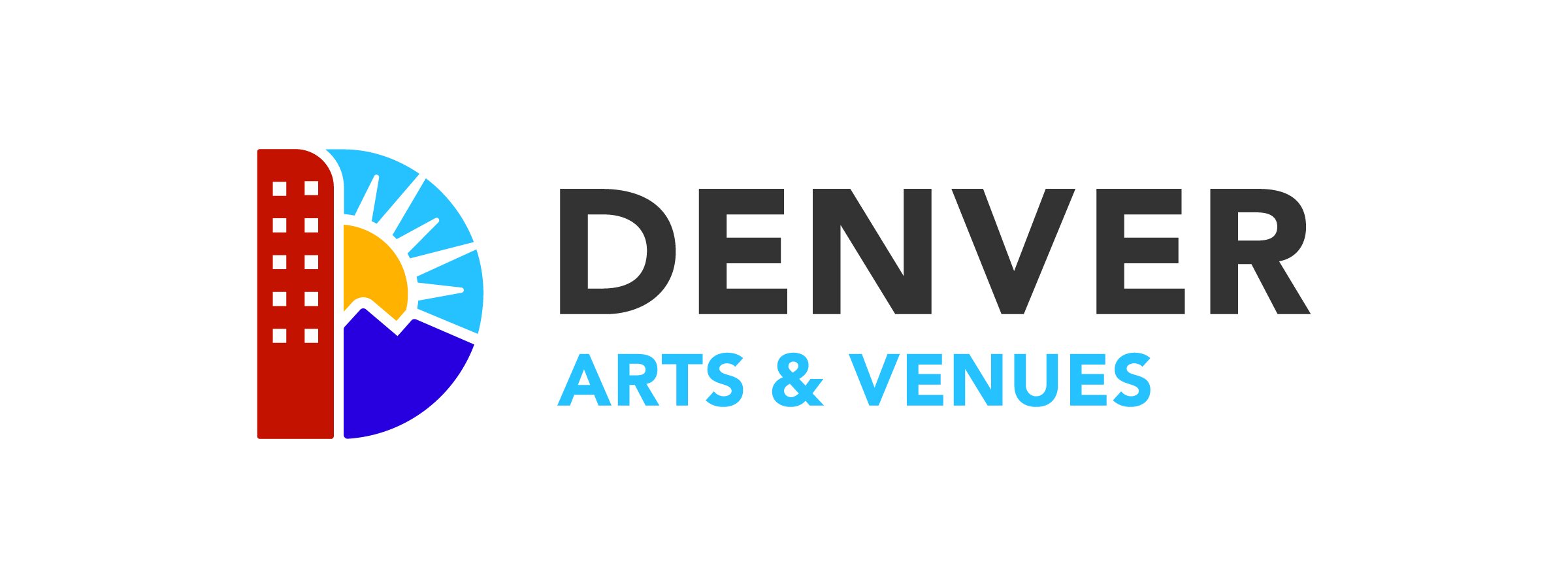April 9, 2022
7:30pm MST
King Center Concert Hall, MSU Denver / Auraria Campus
Tickets $10 (student) to $15 (GA)
Purchase Tickets Here
Since 2006, our annual Colorado Composers Concert (CoCoCo) has featured 118 works by 80 different Colorado-based composers including 16 K-12 composers. Recently, we shifted the focus of this concert to the Colorado Collaborators Showcase (CoCoSho) so that we could continue to expand the realm of contemporary music and offer a platform for cross-disciplinary artists to expand their creative practice and experiment with contemporary chamber music. Resembling a cross-discipline residency, the intent of CoCoSho is to diversify our collaborative partners, offer opportunities for non-musical groups and organizations to create new works involving music, and bring more equity to our commissioning process. Our program is below!
Supported by the Denver Music Advancement Fund and Denver Arts and Venues.
THE PROGRAM
Ghost Figures by Ben Morris (World Premiere)
Ghost Figures is inspired by the Barrier-Canyon Style pictograph panel known as the “Great Gallery” located in Horseshoe Canyon in Utah’s Canyonlands National Park. The panel features apparition-like anthropomorphs and zoomorphs interacting in enigmatic ways. The precise meaning of the panel remains unknown, as there is little evidence of its meaning aside from scant material dug up by archaeologists, who speculate that the pictographs were created between 1-1100 AD.
After a visit to the canyon in summer 2020, I was struck by the immediacy of these artworks; coupled with the haunting, remote atmosphere in the canyon and the shade of nearby cottonwood groves, the panel draws you into a distant foreign world. I also noticed that in the particular locations where rock art is located in the canyon, there is a distinct slap-back echo, suggesting that these rock art sites were also possibly the sites of musical performances. I capture something of that mystery performance in this work, evoking a distant meeting of people by the side of this intricately decorated rock face.
Timestream by Sarah Whitnah in collaboration with Alex Branch (World Premiere)
Timestream was written in 2022 for the Playground Ensemble’s first Colorado Collaborators Showcase (CoCoSho1), in collaboration with interdisciplinary artist Alex Branch. The piece uses multiple sculptural sound instruments made by Branch and is written for four percussionists and solo viola.
The piece employs a variety of percussion and string player techniques to utilize the piano boat’s wide range of sound capabilities. Two additional instruments created by Branch are also used, including her clock chime instrument (with fixed tuning and played mostly with tiny homemade mallets), and her musical saw (with variable tuning capabilities, and played with guitar picks and rubber mallets).
The resulting composition is an otherworldly soundscape unique to these instruments, with eerie pitch centers and timbres, and primal rhythmic drives. The title, Timestream, is both a nod to the clock chimes heard in this piece and the capability of the piano boat to float in water.
Poisons by Robert Strobel (World Premiere)
Poisons encapsulates my passion for the novels of Agatha Christie. Prior to writing the work, I had read around 30-40 of the novels. Christie has a special gift as an author; the ability to see the hidden meaning in seemingly commonplace. An astute observer of human nature, Christie determines truth by understanding how individuals see themselves. Despite the emphasis on details in the novels, there is always the disclaimer that things are not always as they seem. My work Poisons conveys Agatha Christie’s strange world of greed, enmity, and dishonesty on one hand, and healing and peace on the other. The full poem lists good poisons and bad poisons. Why do they exist, why were they created in the first place? For the benefit of humanity, but it’s in the misuse from which vice emerges. The work is an excessively outrageous commentary on humanity’s urge to harm others for their own benefit and trying to get away with it. This narrative provides a metaphor for many aspects of human society. My work Poisons opens the doors wide open, exposing the murderers in their true light. Now there is no escape for them, and no way to hide. This work had three objectives 1) it had an accessible, satisfying form, 2) it employed an interesting counterpoint, 3) it had virtuosic wind parts. I saw it as the opportunity to set a text by Agatha Christie. In 2021, the text was coming into the public domain in the US, and I couldn’t resist writing a work with text by an author I loved. This work was funded by the Barlow Endowment of Brigham Young University and was written especially for the Playground Ensemble. I also used part of the money to fund a collaboration with my friend and entrepreneur/rapper Dade Dinero. It was a pleasure to write this work for the Playground Ensemble; I sought to create a texturally intense, dramatic work.
INTERMISSION
Hollow by Silen Wellington (World Premiere)
"Seeking a girl next door type."
"I enter your hotel room."
reach for your humanity
Hollow: A Banishing Ritual, explores the paradox of being both de-sexualized and hyper-sexualized as a transgender person. In public, mainstream narratives of desirability often preclude transgender bodies, but in private, in the anonymity of dating apps, I have experienced far more harassment and objectification from cisgender men (both gay and straight) after transitioning.
Using found text from cis men on dating apps, Hollow unveils the public/private paradox of cis men’s desire for trans bodies, unearths the hollowness of affection fueled by objectification, and asks how we can reach for each other’s humanity.
For me this piece is about coming out about these experiences in an effort to understand them, heal from them, and be witnessed in them to release what’s getting in the way of intimacy.
To take part in this ritual of release, you are invited to answer the question:
What do you need to release to come closer to yourself and others?
Please write your response on one of the tiny papers provided. Responses will be collected in the middle of the piece, and some (but not all) will be read out loud before all responses will be released together.
*Content Note: This piece includes expressions of transphobia, misogyny, sexual harassment, sexually explicit messages, & discrimination/stigma against sex workers.
Coming Together by Frederic Rzewski with dance performance by Nu-World Contemporary Danse Theatre
Narrated by Eric Davis (Bio below)
In September 1971, a riot broke out at the Attica Correctional Facility in upstate New York, demanding improved health care, sanitation, and food, as well as an end to beatings. Four days of tense negotiations followed, culminating in the storming of the prison by state police as ordered by Governor Nelson Rockefeller. At least 43 people died, including 33 prisoners.One of those was Samuel Melville (born Grossman; he borrowed Melville from the American novelist), a draftsman who became radicalized by apartheid when his company put him to work on new bank offices in South Africa. He became increasingly active in political demonstrations, which escalated into a series of bombings in 1969. Melville pleaded guilty to conspiracy and bombing the Federal Office Building in Manhattan and was transferred to Attica, where he became one of the leaders of the prison rebellion. He was shot and killed during the retaking of the complex. A book of letters he wrote from prison was posthumously published, and Frederic Rzewski took his text for Coming Together from Melville’s letter of May 16, 1971 (which was first published separately in a magazine):
"I think the combination of age and the greater coming together is responsible for the speed of the passing time. it’s six months now and i can tell you truthfully few periods in my life have passed so quickly. i am in excellent physical and emotional health. there are doubtless subtle surprises ahead but i feel secure and ready. As lovers will contrast their emotions in times of crisis, so am i dealing with my environment. in the indifferent brutality, incessant noise, the experimental chemistry of food, the ravings of lost hysterical men, i can act with clarity and meaning. i am deliberate – sometimes even calculating – seldom employing histrionics except as a test of the reactions of others. i read much, exercise, talk to guards and inmates, feeling for the inevitable direction of my life."
“As I read it, I was impressed both by the poetic quality of the text and by its cryptic irony,” Rzewski wrote. “I read it over and over again. It seemed that I was trying both to capture a sense of the physical presence of the writer and, at the same time, to unlock a hidden meaning from the simple but ambiguous language. The act of reading and rereading finally led me to the idea of a musical treatment.”This treatment is the recitation of the text, a few words at a time, over a driving pentatonic bass line of steady 16th notes. The instrumentation is open and the piece can be performed by any number of players, though usually 8-10. Only the bass line is notated; all of the other parts are derived from it in ways specified by the composer. The overall form is also clearly defined, as are dynamics and articulation. (John Henken)
Narrator, Eric Davis
Eric Davis grew up skiing and roaming the mountains around Idaho Springs, Colorado. But he longed for a life in the shining city down the hill—Denver. By the time he was eighteen years old, he had not only lived in Denver, but he had also found a way to make choices that altered the lives of countless people. For the next thirty-four years he was incarcerated in the Colorado Department of Corrections. During those three decades Eric made a concerted effort to become a man of integrity, who looked to affect the world in positive ways. He was a member of the Shape Up program at the Arkansas Valley Correctional Facility and the Territorial Correctional Facility. This program brought teenagers into the facilities to spend time with the men of Shape Up who offered advice to these younger men heading down the wrong path in life—a path similar to the one the men of Shape Up had taken. Rather than continuing to engage in more destructive behavior while inside, Eric constantly sought out productive, meaningful programming and activities. Then in 2019, DU PAI found him. While working on the Fremont Correctional Facility’s Pens & Paradigms newsletter, he and that team were approached by DU PAI and CDOC with the idea of creating a newspaper written and produced by men and women in CDOC. With that, The Inside Report was born, and Eric was officially a part of the DU PAI family. In February of 2021, Eric was granted early parole by Governor Polis following Eric’s participation in the Juveniles Convicted as Adults Program. DU PAI wrapped their arms around Eric as he reentered the community he had abandoned so long ago, and he is now officially an employee of DU PAI. Eric hopes to work every day to change the world with his new family and all who have supported and encouraged him for so many years.


